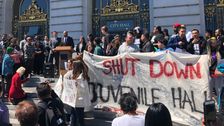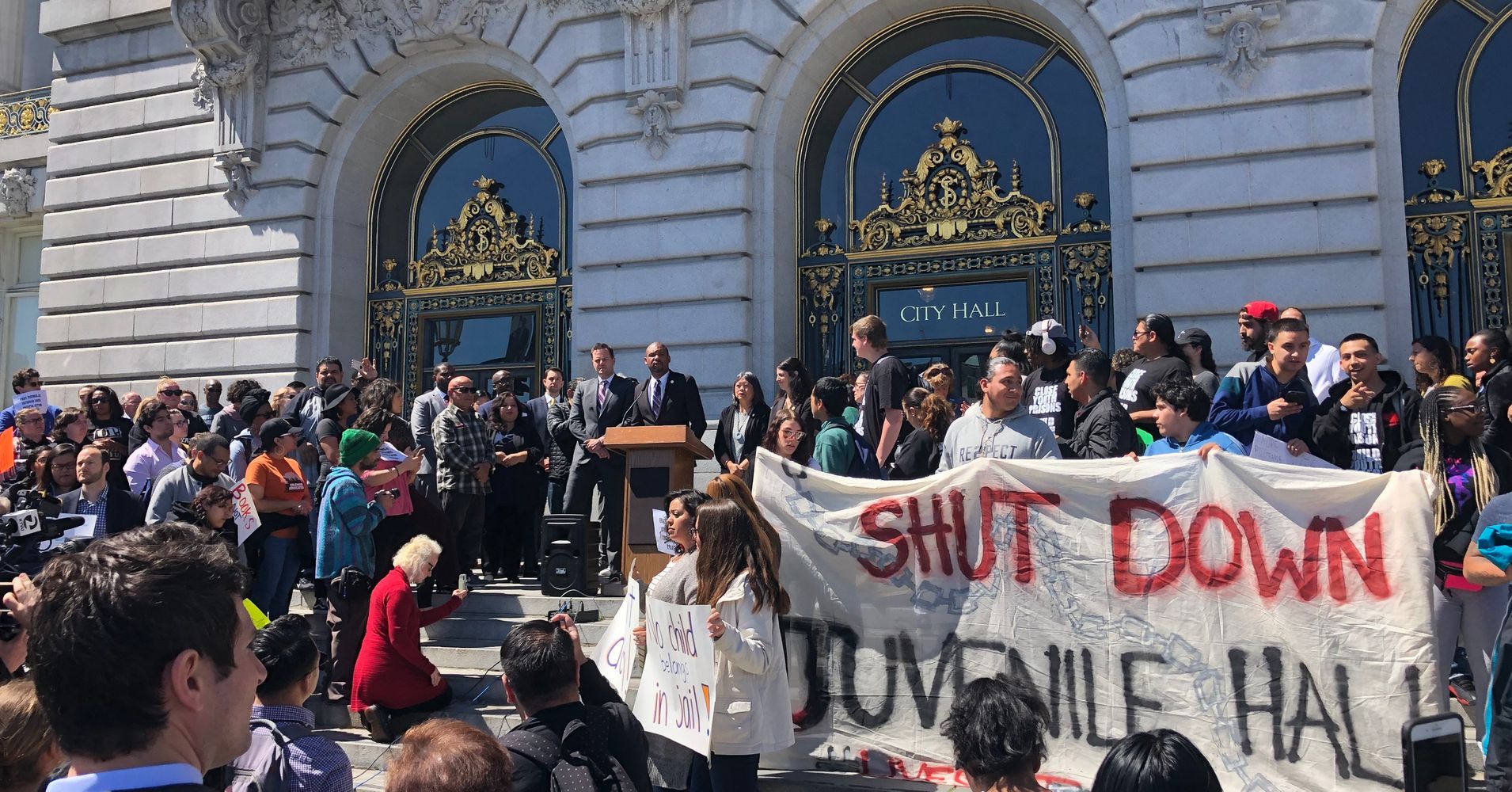[ad_1]

San Francisco officials voted on Tuesday to close the city’s juvenile hall by the end of 2021 ― making it one of the nation’s first major cities to take such a step.
In a 10-1 vote, the San Francisco Board of Supervisors approved an ordinance to shutter the youth detention facility within two and a half years. The measure also calls for expanding programs that would serve as “community-based alternatives” to detention and creating a smaller, non-institutional, “rehabilitative” center for those who must be detained by law.
“Today we made history and voted… to close our juvenile hall in SF and provide an alternative that allows our young people to truly have a chance at rehabilitation!” Supervisor Shamann Walton, who spent time in juvenile hall as a youth, said in a tweet. “Schools not prisons!”
The ordinance directs the creation of a 12-person working group, including city officials, juvenile justice experts and community members, to design alternatives to youth incarceration. It will also establish a fund to redirect money previously allocated for the juvenile hall to programs, mental health support and academic help for youths in the justice system.
While the San Francisco public defender’s office and District Attorney George Gascón both came out in support of the measure when it was first introduced in April, Mayor London Breed instead pushed for a panel to make recommendations to reform the current system and reduce the number of young people detained. Breed told local news outlet KQED Wednesday that the decision to close juvenile hall by end of 2021 was “not the most responsible thing to do without a real plan of action.”
San Francisco’s juvenile hall held 45 young people ages 13 to 18 in January, per the city’s latest juvenile probation department report. The youth detention facility, which can house up to 132 people, is meant to detain youth who are accused of committing offenses and awaiting court hearings or court-ordered placement.
There are stark racial disparities in San Francisco’s juvenile justice system. While only about 5% of the children in the city are black, about 60% of the kids in juvenile hall in January were black.
The legislative push to close the facility came after a San Francisco Chronicle report earlier this year that showed youth crime rates dropping across the state in recent years, decreasing the populations in juvenile halls, even as spending on those facilities remained at high levels.
“This is about justice and reducing the harm that happens to our young people,” K.I. Ifopo, an organizer with the juvenile justice advocacy group Young Women’s Freedom Center, said in a release. “Now, we finally have the chance to do better by the kids that have been locked up without the care of our families, friends and communities.”
This article has been updated with Breed’s comments to KQED.
REAL LIFE. REAL NEWS. REAL VOICES.
Help us tell more of the stories that matter from voices that too often remain unheard.
[ad_2]
Source link

